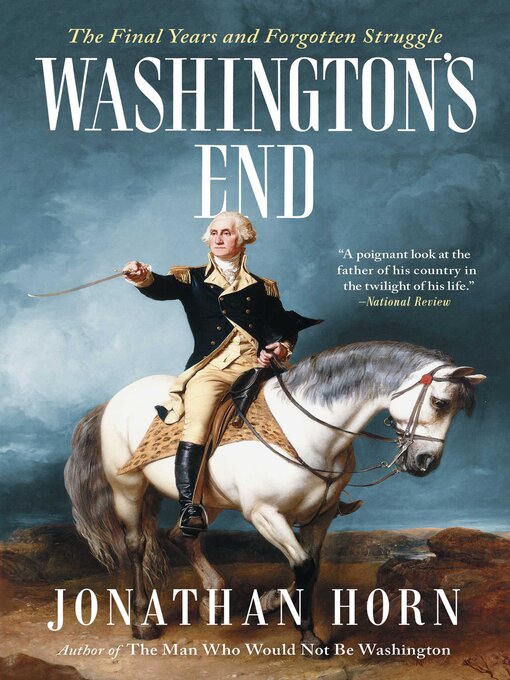
Beginning where most biographies of George Washington leave off, Washington's End opens with the first president exiting office after eight years and entering what would become the most bewildering stage of his life. Embittered by partisan criticism and eager to return to his farm, Washington assumed a role for which there was no precedent at a time when the kings across the ocean yielded their crowns only upon losing their heads. In a different sense, Washington would lose his head, too.
In this riveting read, bestselling author Jonathan Horn reveals that the quest to surrender power proved more difficult than Washington imagined and brought his life to an end he never expected. The statesman who had staked his legacy on withdrawing from public life would feud with his successors and find himself drawn back into military command. The patriarch who had dedicated his life to uniting his country would leave his name to a new capital city destined to become synonymous with political divisions.
A "movable feast of a book" (Jay Winik, New York Times bestselling author of 1944), immaculately researched, and powerfully told through the eyes not only of Washington but also of his family members, friends, and foes, Washington's End is "an outstanding biographical work on one of America's most prominent leaders (Library Journal).
-
Creators
-
Publisher
-
Release date
February 11, 2020 -
Formats
-
OverDrive Read
- ISBN: 9781501154256
-
EPUB ebook
- ISBN: 9781501154256
- File size: 77646 KB
-
-
Accessibility
-
Languages
- English
-
Reviews

Loading
Formats
- OverDrive Read
- EPUB ebook
Languages
- English
Why is availability limited?
×Availability can change throughout the month based on the library's budget. You can still place a hold on the title, and your hold will be automatically filled as soon as the title is available again.
The Kindle Book format for this title is not supported on:
×Read-along ebook
×The OverDrive Read format of this ebook has professional narration that plays while you read in your browser. Learn more here.